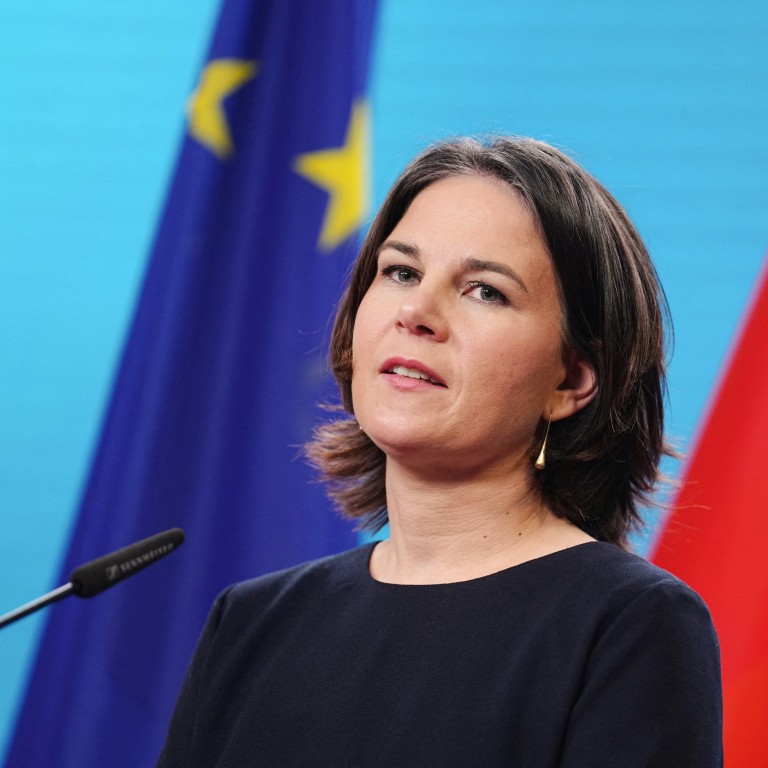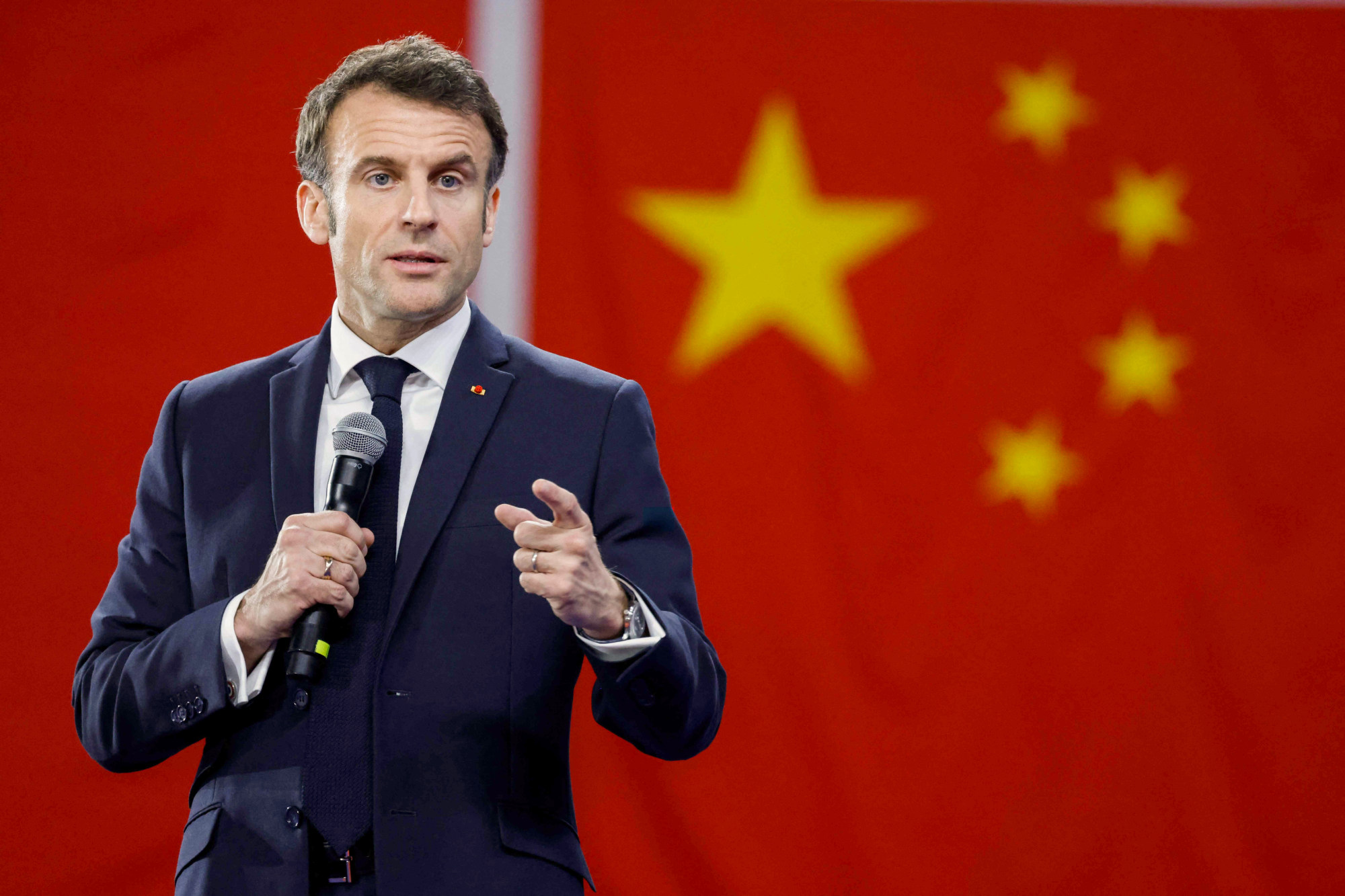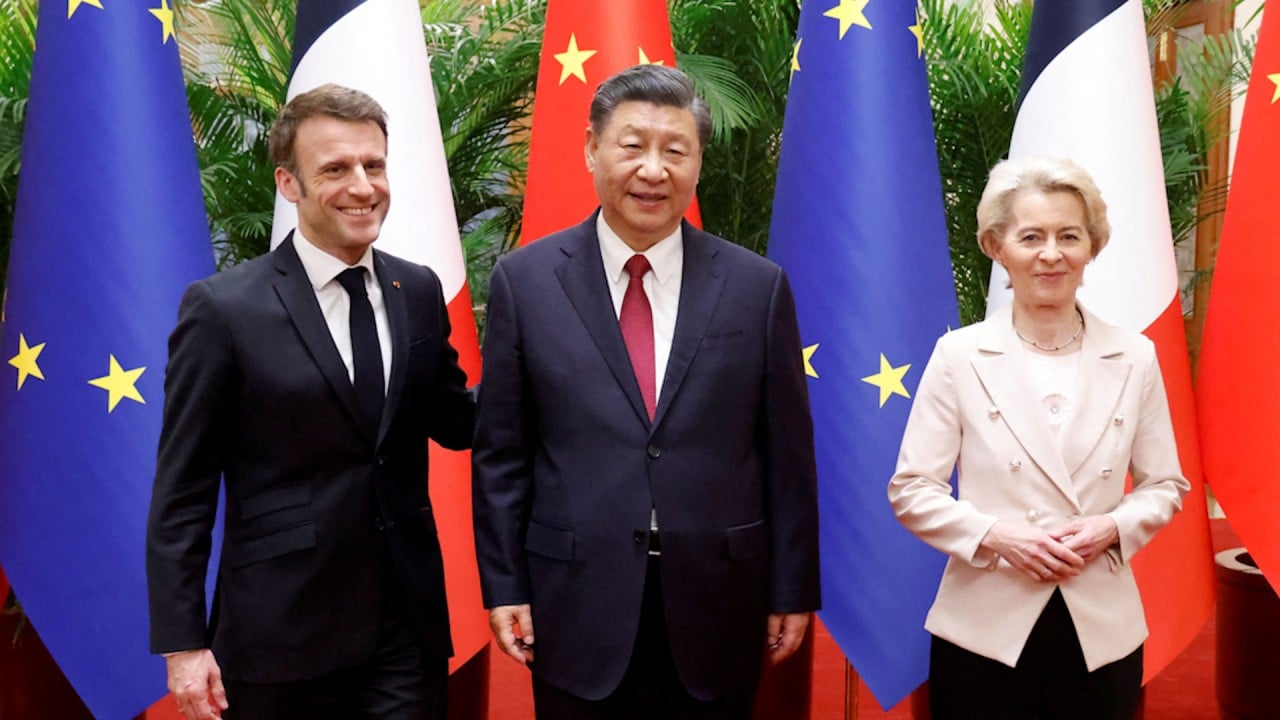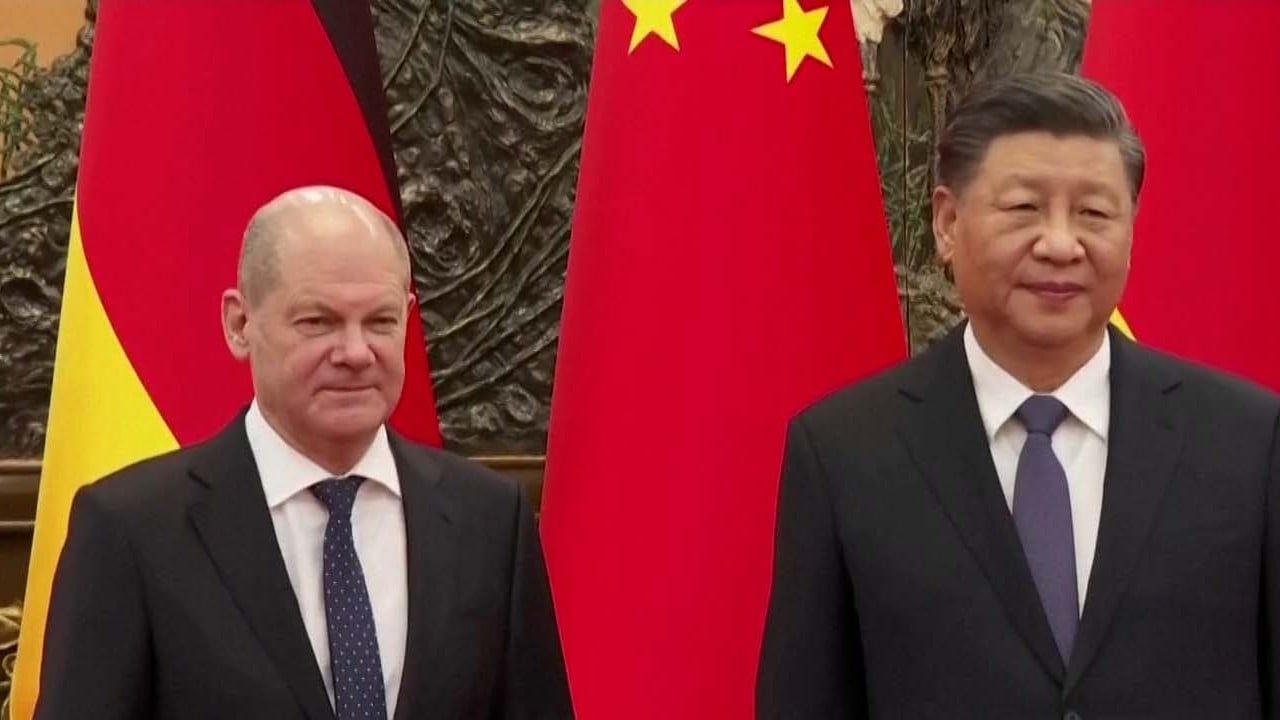
How China uses influence on Russia is key to its ties with Europe, German Foreign Minister Annalena Baerbock says
- Baerbock says a ‘swift and just’ end to Ukraine war will be top of her agenda when she visits China this week
- She insists Germany does not want to decouple but wants to ‘de-risk’ the relationship by reducing its economic reliance on China
In a statement released on Wednesday, the stern China critic described her country’s biggest trading partner as a “competitor”, “systemic rival” and “global player that increasingly wants to shape the world order according to its own designs”.
Macron calls for ‘European sovereignty’ amid furore over Taiwan comments
Baerbock will visit China between Thursday and Saturday, meeting her Chinese counterpart Qin Gang for what the Chinese foreign ministry described as a strategic dialogue on diplomacy and security.
“At the top of my agenda … is our interest in bringing the war on our European doorstep in Ukraine to a swift, lasting and just end,” she said.
“The role that China plays with its influence vis‑à‑vis Russia will have consequences for the whole of Europe and for our relationship with China.”
Baerbock noted that Beijing was willing to “weigh in on world affairs” – a reference to the recent deal it brokered to restore diplomatic relations between Iran and Saudi Arabia – adding: “As a permanent member of the UN Security Council, China bears a special responsibility for world peace.”
Baerbock’s trip comes amid the growing controversy surrounding Emmanuel Macron’s comments on his way back from a visit to China last week.
While it did not have high hopes that China could repeat its successful efforts in the Middle East in Europe, Germany hoped to play a potential role in any Chinese-mediated peace process in Ukraine, according to Moscow-based political analyst Andrew Korybko.
“This doesn’t mean that Berlin would be a mediator ... but would want to stay abreast of everything,” he added.
According to Korybko, Baerbock, like European Commission President Ursula von der Leyen, will take a harder approach towards Beijing than the French.
“Whereas Macron appeared to signal reluctance in complying with any US pressure that could affect his country’s ties with China in any scenario, specifically regarding a hot conflict over Taiwan, Baerbock represents a country that’s more likely to do whatever the US might demand of it,” said Korybko, who is an expert council member at the Peoples’ Friendship University of Russia.
Meanwhile, European Council President Charles Michel backed Macron in a TV interview on Wednesday by saying European leaders were becoming increasingly favourable toward Macron’s push for “strategic autonomy”, Politico reported.
“There has been a leap forward on strategic autonomy compared with several years ago,” he told the French television show La Faute a l’Europe.
“On the issue of the relationship with the United States, it’s clear that there can be nuances and sensitivities around the table of the European Council [the body that represents EU member governments].
Germany reviews controversial Chinese stake in port
“Some European leaders wouldn’t say things the same way that Emmanuel Macron did … I think quite a few really think like Emmanuel Macron.”
Echoing Macron’s earlier comments, Baerbock said Germany had “no interest in economic decoupling”, but would aim to “de-risk” by reducing its unilateral economic dependency.
“China has changed, and after the end of the Covid‑19 restrictions, I want to gain a first-hand impression of the direction that the new leadership is heading in, also with regard to the balance between political control and economic openness,” she added.
Baerbock will spend the first two days in the northern metropolis of Tianjin, visiting a school with German ties, as well as a German-owned wind turbine factory.
She will meet Qin on Friday for a tour of an electromobility company, before they travel to Beijing together.

In Beijing, Baerbock will meet Chinese Vice-President Han Zheng and Wang Yi, the country’s foreign policy chief.
“We have the impression that measures such as threatening military gestures … increase the risk of unintended military clashes,” ministry spokeswoman Andrea Sasse said on Wednesday.
In her statement, Baerbock similarly described intensification as a “terrifying scenario”.
“During my visit, I will therefore also underline the common European conviction that a unilateral change to the status quo in the Taiwan Strait, and especially military escalation, would be unacceptable,” she said.
During a visit to the Netherlands on Wednesday, Macron also said France’s support of the status quo in Taiwan, the one-China policy and “the search for a peaceful resolution to the situation” remain unchanged.
Korybko noted that since the second world war, France had generally been more inclined to take its own course in foreign policy rather than follow the US lead, adding: “France is simultaneously competing with Germany to be the ‘voice of Europe’ across the world, ergo the informal purpose of Macron’s latest trip to Beijing, so Baerbock might feel pressured by this to at least soften her rhetoric on [the Taiwan] issue in order for Germany’s position in this respect vis-a-vis China to remain viable.”
China’s recent diplomatic achievements and post-pandemic recovery have shown its European counterparts that it is an alternative to the US, according to Andy Mok, senior research fellow at the Centre for China and Globalisation, a non-governmental think tank in Beijing.
“Germany’s government may follow the lead of companies like BASF and Volkswagen in taking advantage of China being an island of economic stability in an increasingly uncertain world,” said Mok, referring to the German chemical giant’s recent plans to build an integrated plant in the southern province of Guangdong and the carmaker’s expanding operation in the country.
He also said there may soon be a “tipping point” regarding Europe’s relationship with Russia.
“Regarding Russia, many Germans are questioning how long they can continue bearing the costs of being under the American boot when it is becoming increasingly clear that an unnecessary adversarial relationship with Russia undermines their national security and economic prosperity.”



